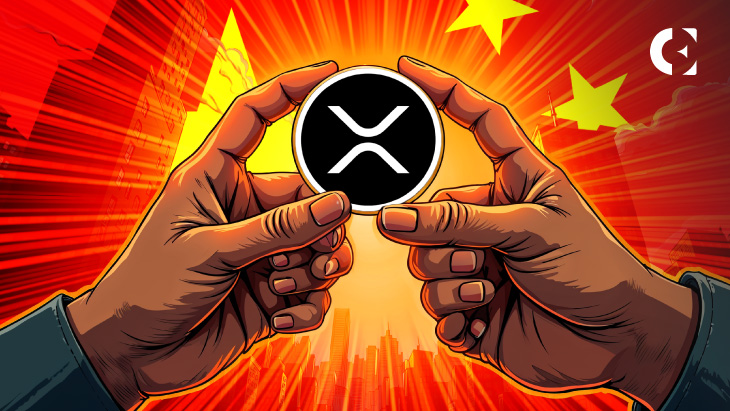- China’s Webus International plans a $300M non-equity fund for an XRP reserve.
- Aims to use XRP for instant cross-border settlements in its global chauffeur network.
- Follows VivoPower’s $121M XRP treasury; China’s IMI notes Bitcoin as reserve hedge.
Chinese AI mobility firm Webus International unveiled a plan on May 29 to raise up to $300 million through non-equity financing to build an XRP reserve, a strategic move designed to support instant cross-border settlements across its global chauffeur service network.
This development closely follows a May 28 announcement from VivoPower International, a clean-energy firm with strong institutional backing, announced a $121 million private placement to fund its own XRP treasury platform. Together, these moves suggest an emerging corporate strategy where XRP is increasingly viewed as a functional financial tool beyond its status as a cryptocurrency.
Webus Bets on XRP for Seamless Borderless Mobility
Webus plans to establish the XRP reserve using a combination of cash, bank loans, and institutional credit, deliberately steering clear of issuing new equity.
According to CEO Nan Zheng, this XRP reserve will fuel a blockchain-based payment system that enables on-chain booking, instant driver refunds, and a Web3 loyalty ecosystem–all powered by XRP.
Related: Brad Garlinghouse Highlights Rise of Crypto ETFs and Institutional Adoption
The company aims to implement an international expansion strategy that includes developing proprietary blockchain infrastructure and growing its operational footprint overseas. Although no timeline was given for the reserve’s activation or token purchases, executives stressed that using non-equity tools provides the flexibility to scale the reserve with market trends.
Webus also renewed its partnership with Tongcheng Travel, one of China’s largest online travel firms with 240 million users. Through this alliance, Webus aims to deploy XRP-based solutions to eliminate currency conversion costs and improve operational fluidity on global routes.
China’s Quiet Embrace of Crypto Reserves
The International Monetary Institution (IMI), a state-backed Chinese financial think tank, republished a research article on May 28 arguing that Bitcoin is emerging as a strategic reserve hedge for developing economies facing pressure from US dollar dominance.
Though IMI stopped short of endorsing Bitcoin or XRP outright, its note stated the asset “deserves continued attention” and highlighted the erosion of trust in US dollar-denominated reserves amid rising debt and inflation.
Related: RLUSD Listed on Bitget; Ripple’s Stablecoin Offers XRP Ledger, Ethereum Interoperability
For China, which bans crypto trading and mining, such a statement from a state-affiliated think tank hints at growing institutional curiosity–if not policy exploration–regarding crypto’s role in reserve diversification.
US President Donald Trump earlier this year announced the inclusion of XRP, alongside Ethereum and Bitcoin, in the official US strategic reserve.
Disclaimer: The information presented in this article is for informational and educational purposes only. The article does not constitute financial advice or advice of any kind. Coin Edition is not responsible for any losses incurred as a result of the utilization of content, products, or services mentioned. Readers are advised to exercise caution before taking any action related to the company.







